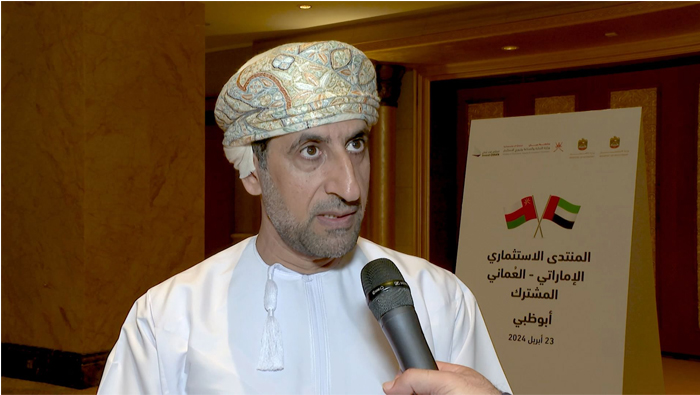
Muscat/Abu Dhabi: The UAE-Oman railway project will serve multiple sectors in both countries and contribute to the development of new sectors previously nonexistent due to the difficulty in transport of goods, said Eng. Mohammed Zahran Al Mahrouqi, Deputy CEO of Hafeet Rail company.
He pointed out the project's environmental benefits by reducing carbon dioxide emissions. The train's capacity, equivalent to 300 trucks, will reduce 80 percent of carbon emissions generated by trucks.
Speaking to the Emirates News Agency (WAM) on the sidelines of the joint UAE-Omani Business Forum in Abu Dhabi, he said, "Today, during the forum, we witnessed the signing of the partnership agreement for the UAE-Oman railway project between 'Etihad Rail' and 'Oman Rail' along with Mubadala Investment Company."
He added, "The signing of the agreement marks the actual start of the project and construction works."
He further stated, "Construction works were the focus of the second agreement signed on Tuesday during the forum, assigning the works to a national alliance led by Trojan Construction Group and Galfar Engineering and Contracting. The tender allocation reflects a clear vision aimed at empowering and developing national cadres and contractors, enhancing local value-added, and involving the private sector in this vital project."
He highlighted the signing of an agreement to allocate control and communication systems to Siemens and HIC Corporation, providing the latest systems and technologies for train control and communication with the network.
He explained that the control system will be based on the latest European Train Control System (Level 2), providing ease and smoothness in train control and communication while ensuring necessary safety measures.
He anticipated that the joint railway project would achieve various objectives, including fostering closer ties between the two nations, with a passenger sector in the project accommodating up to 400 passengers per train.
He discussed the economic impact, highlighting freight trains' role in enhancing trade exchange between the two countries, with a cargo capacity of up to 15,000 tonnes of general goods and approximately 270 standard containers.
He noted that the passenger train's speed will reach 200 kilometres per hour, covering the distance between Sohar and Abu Dhabi in 100 minutes, while freight trains will take about 120 minutes.
Ahmed Al Musawa Al Hashemi, CEO of Hafeet Rail, affirmed that the railway project between the Sultanate of Oman and the United Arab Emirates has entered into the implementation phase today.
He said that several tangible steps have been made, starting with the signing of the partnership agreement between stakeholders, and the awarding of major contracts for the project to a UAE-Omani alliance comprising companies from both countries operating as one team.
Al Hashemi emphasised that the project will yield numerous economic and social benefits. He highlighted that the railways operate with high efficiency in terms of safety and security and are among the most sustainable means of transportation environmentally.
He affirmed his expectations that the UAE-Oman railway project will serve as a catalyst for further cooperation in various economic and industrial sectors, noting its direct impact on passenger movement between the two countries, further boosting tourism and ties between their peoples.
He added that the railway line in this project extends from the existing network in the UAE, specifically from the Al Wathba area to the city and port of Sohar, passing through diverse geographical areas from desert to mountainous and valley regions, and running alongside Jebel Hafeet, from which the joint venture company Hafeet Rail derives its name.